
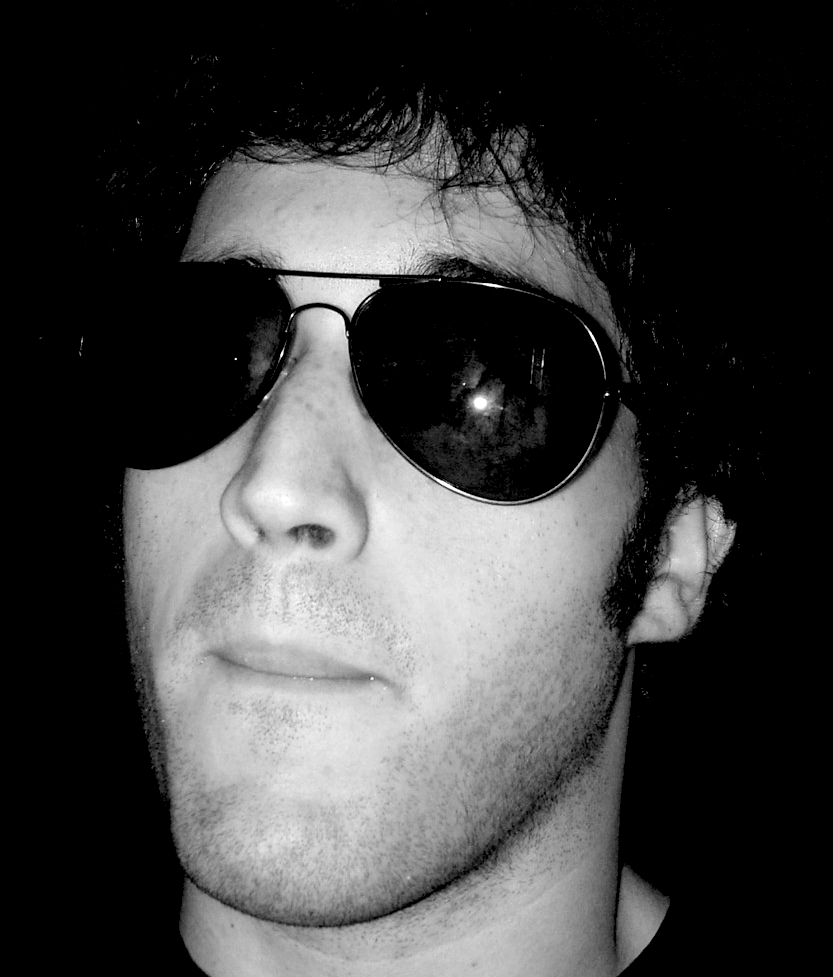 BY ARTHUR SHKOLNIK Quintessential Englishman Richard Thompson has been pushing the boundaries of finger-style guitar since the mid-sixties, when he founded Fairport Convention as a teenager. Five decades and over 40 albums later, Thompson has proven himself a force not to be folked and he is consistently ranked as one of the top five living guitarists and one of the greatest songwriters in recent memory. His newest album, Dream Attic, is a collection of 13 new tracks recorded in real time during a series of West Coast shows. The music continues to emulate life through introspective lyrics and incandescent guitar solos that sherpa the listener through a series of emotional peaks and valleys. The dynamic performances spill over into multiple genres, capturing the high energy of the stage without compromising the accuracy of the studio, which is a testimony to his band’s elevated level of musicianship. Thompson will be playing a solo acoustic set on Sunday at the 49th annual Philadelphia Folk Festival. Recently we got him on the horn to discuss Fairport Convention, his new album, his surprise onstage reunion with Linda Thompson his long estranged ex-wife and former musical partner and his long, proud association with the Philadelphia Folk Fest.
BY ARTHUR SHKOLNIK Quintessential Englishman Richard Thompson has been pushing the boundaries of finger-style guitar since the mid-sixties, when he founded Fairport Convention as a teenager. Five decades and over 40 albums later, Thompson has proven himself a force not to be folked and he is consistently ranked as one of the top five living guitarists and one of the greatest songwriters in recent memory. His newest album, Dream Attic, is a collection of 13 new tracks recorded in real time during a series of West Coast shows. The music continues to emulate life through introspective lyrics and incandescent guitar solos that sherpa the listener through a series of emotional peaks and valleys. The dynamic performances spill over into multiple genres, capturing the high energy of the stage without compromising the accuracy of the studio, which is a testimony to his band’s elevated level of musicianship. Thompson will be playing a solo acoustic set on Sunday at the 49th annual Philadelphia Folk Festival. Recently we got him on the horn to discuss Fairport Convention, his new album, his surprise onstage reunion with Linda Thompson his long estranged ex-wife and former musical partner and his long, proud association with the Philadelphia Folk Fest.
PHAWKER: Okay, please identify yourself…
RICHARD THOMPSON: This is Richard Thompson, speaking to you on behalf of the entire people of Britain.
PHAWKER: (laughs) Very good. You’ve been making music for five decades with 40 or so albums and several hundred songs under your belt. I know it’s a lot of ground to cover, but I was hoping you could try and briefly summarize the narrative arc of your biography.
RICHARD THOMPSON: (laughs) Briefly. I was in Fairport Convention pretty much when I left school at 18. Fairport was a folk punk band and we played the sort of music that was a mixture between traditional music and rock music. I left that band in 1971. Went for about 10 years with my ex-wife Linda, and after that ended I’ve been playing pretty much solid ever since. How’s that? (laughs)
PHAWKER: You were a teenager when you founded and led Fairport Convention?
RICHARD THOMPSON: Correct, yeah.
PHAWKER: Do you miss anything about those days, and are there any parts that maybe you’re glad to have behind you at this point?
RICHARD THOMPSON: (laughs) I miss being young; that was quite exciting. That’s definitely changed. I think there’s a kind of freshness and an originality about the first time that you come to something, you know, the first time you come to music, the first time you come to new ideas.And I think the rest of your life is trying to keep that ability to be naive, to see things for the first time, but when you are young it just happens to you naturally, so I miss that. And I miss the music scene in the 60’s, which I think was very exciting. At the time we thought it was normal, but as decades passed it does seem to have been an exceptional time; a very open-minded time musically, where you had a huge range of styles, and audiences or record buyers seemed to be very open-minded about the kind of music they’d listen to.
PHAWKER: And you mentioned your ex-wife slash musical partner Linda Thompson.
RICHARD THOMPSON: Yep.
PHAWKER: You had recently performed together for the first time in 30 years; can you tell me a little bit about that experience and how it came about in the first place?
RICHARD THOMPSON: Yeah, it came about because we were both performing on a tribute show to Kate McGarrigle, who died this year, and there were many many artists on the bill, and there was a song that Linda was singing on her own, so it started because she needed a guitar accompaniment and I was happy to do that. So, I mean, I could see it as “this is a big reunion,” and it really couldn’t go anywhere else. It was a one night thing and I was sort of the designated guitar player, and it was fine and the audience seemed to like it.
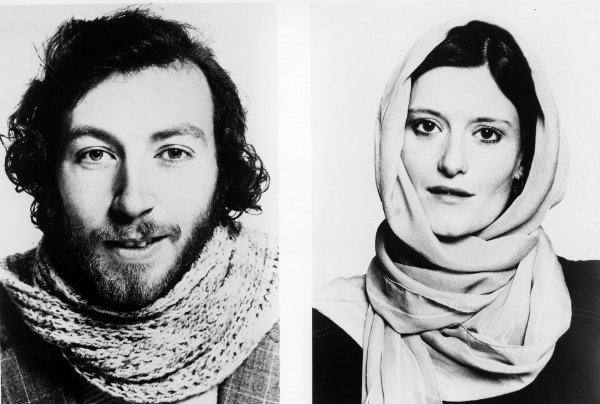 PHAWKER: On the topic of your guitar playing: you’re a masterful finger style guitar player. I was hoping you could discuss who your musical influences are or were over the years, what you learned from them and/or why did they make such an impact on you?
PHAWKER: On the topic of your guitar playing: you’re a masterful finger style guitar player. I was hoping you could discuss who your musical influences are or were over the years, what you learned from them and/or why did they make such an impact on you?
RICHARD THOMPSON: Boy, that’s a tough one. Guitar players, my dad had some jazz guitar records. He had some Django Reinhardt records, some Les Paul records, so that was stuff I was hearing really all my life. Then Rock n’ Roll came along. James Burton, Scotty Moore were probably a big influence. But I think at a certain point I stopped listening to guitar players and started listening to other instruments, because sometimes you can get more ideas from listening to other things, for instance a pianist has got two hands on the keyboard so he can very easily play counterpoint and I think that’s something that a lot of guitar players have tried to borrow from. Guitar players like Chet Atkins try to make guitar a more orchestral instrument, and I’m trying to do the same thing. So, guys like Louie Armstrong. Again, I’ve been listening to him since I was a tot, really. John Coltrane, tons of composers… lots and lots of them. Whole range of stuff really.
PHAWKER: Well are there any bands or artists you find yourself listening to nowadays?
RICHARD THOMPSON: Yeah, there’s a whole bunch of good stuff out there. I think Field Music had a really interesting band. The Klaxons I think are very good. That’s another UK band. I think in every generation there’s good songs and singers. I don’t think they’re always commercially successful so I think sometimes you have to root around a little bit.
PHAWKER: Let’s talk about your new album a little bit. Dream Attic, which comes out later this month, is a live album of new material. Is that correct?
RICHARD THOMPSON: That’s true, yes.
PHAWKER: Historically live albums are usually full of old material, so what is it about these songs that you felt made them better suited to a 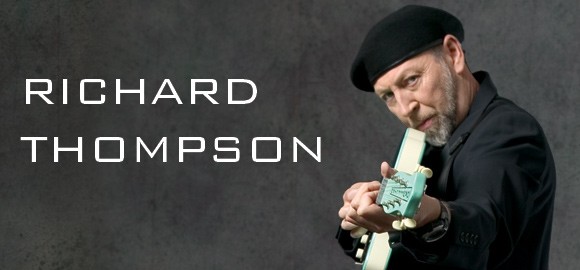 live setting as opposed to a recording studio?
live setting as opposed to a recording studio?
RICHARD THOMPSON: Well I suppose I was thinking about how I was going to record these songs and I was thinking that we’d try to record them as live as possible, and a direction I get from fans is that they say “we prefer the live version of your songs to the studio version,” so I thought “let’s shortcut the process here. Let’s not use recording studios. Let’s record straight out live. Let’s record a few nights of us playing the songs live and see how that works.” It’s a really deep process, and slightly crazy to press on this way, but I was very happy with the way it came out, I’m very excited that we’re able to have this record.
PHAWKER: And you wrote it in a span of three months? Is this usual for your writing process, or were you particularly inspired by something during the time you were putting together Dream Attic?
RICHARD THOMPSON: I don’t know. I think I just had some time to write, which is the main thing, really, but being a musician on the road, sometimes you don’t have the time to develop ideas, but I actually had some time off and that was a great help. You can’t really say why sometimes it’s a struggle to write and other times it’s easy. Sometimes I’ll spend six months just staring at the wall and getting nowhere, but this seemed to be a fairly fertile time so I’m just grateful.
PHAWKER: I was listening through parts of Dream Attic, and every song seems to be a different genre or at least a radical departure in style. Why don’t you talk a little bit about the album and how you contrast your older work with some of the newer music you’re making now?
RICHARD THOMPSON: I think the album covers a lot of topics, and a lot of areas without really conceiving it that way, it’s just kind of the way it turned out. There’s songs that will be post-political or social commentary kind of. Personal songs, songs about growing old…
PHAWKER: Are you referencing “Crimescene?”
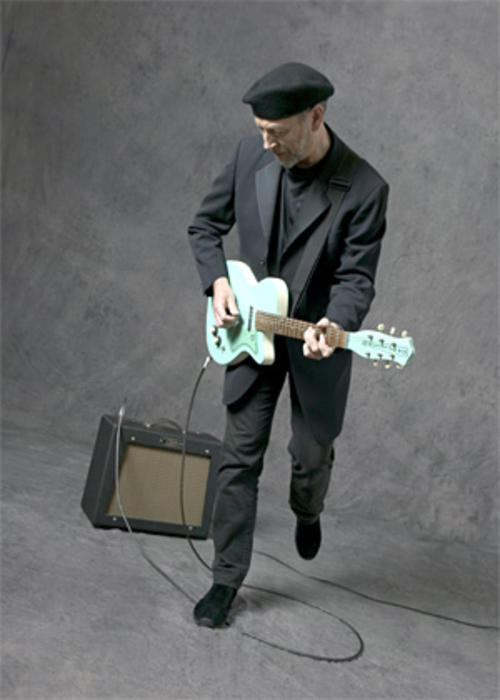 RICHARD THOMPSON: Yeah, absolutely. It could certainly be taken that way anyway. I mean, on the face it’s a song about a crime scene, but if the crime scene is your own body I think it makes a bit more sense. To contrast this album with my older work I’m not sure I’m in a position to do that. Perhaps a year down the road when the songs are a bit more familiar I’d be able to step back and say “this is different from what I used to do” or “this is the same as what I used to do.” I think these songs are a continuation of the kind of path I’m on musically, and with musical paths you’re supposed to continue moving forward, hopefully. This is continuing in a direction and not going backwards.
RICHARD THOMPSON: Yeah, absolutely. It could certainly be taken that way anyway. I mean, on the face it’s a song about a crime scene, but if the crime scene is your own body I think it makes a bit more sense. To contrast this album with my older work I’m not sure I’m in a position to do that. Perhaps a year down the road when the songs are a bit more familiar I’d be able to step back and say “this is different from what I used to do” or “this is the same as what I used to do.” I think these songs are a continuation of the kind of path I’m on musically, and with musical paths you’re supposed to continue moving forward, hopefully. This is continuing in a direction and not going backwards.
PHAWKER: Fair enough. You said you covered a lot of different subject matter. Clearly the style drastically changes from song to song. Was this intentional? Did you have a particular genre or style in mind when you put this CD together?
RICHARD THOMPSON: I wanted to have in the band musicians who were capable of referencing traditional music, and that was something I was keen to incorporate from the beginning. So there’s a kind of a rock feel to the record there’s also a kind of traditional feel to the record. I thought that was important. In terms of other arrangements, I think it was really just trying to use the ability of the musicians in the band, and obviously if we’re making this record live there’s no possibilities of over dubbing instruments to change the sound, so the record is pretty much played straight; there’s no editing, no overdub, nothing. So, what you hear is what you get. So the goal is to get the closest to the emotion of each particular song.
PHAWKER: Right, like you said “what you hear is what you get.”
RICHARD THOMPSON: Yeah.
PHAWKER: So is that a good thing or a bad thing? You tell me.
RICHARD THOMPSON: If you’re recording in this way, if you’re recording live, it’s a good thing and it’s the only thing that you have, really. I think what you’re doing is sacrificing some studio techniques and things like accuracy that you get in the studio for spontaneity and energy. I think this is a high energy record, which is just what happens when you play in front of a live audience.
PHAWKER: I would agree. I would absolutely agree that it’s high energy. As we talked about earlier “Crimescene,” a very explosive song. It 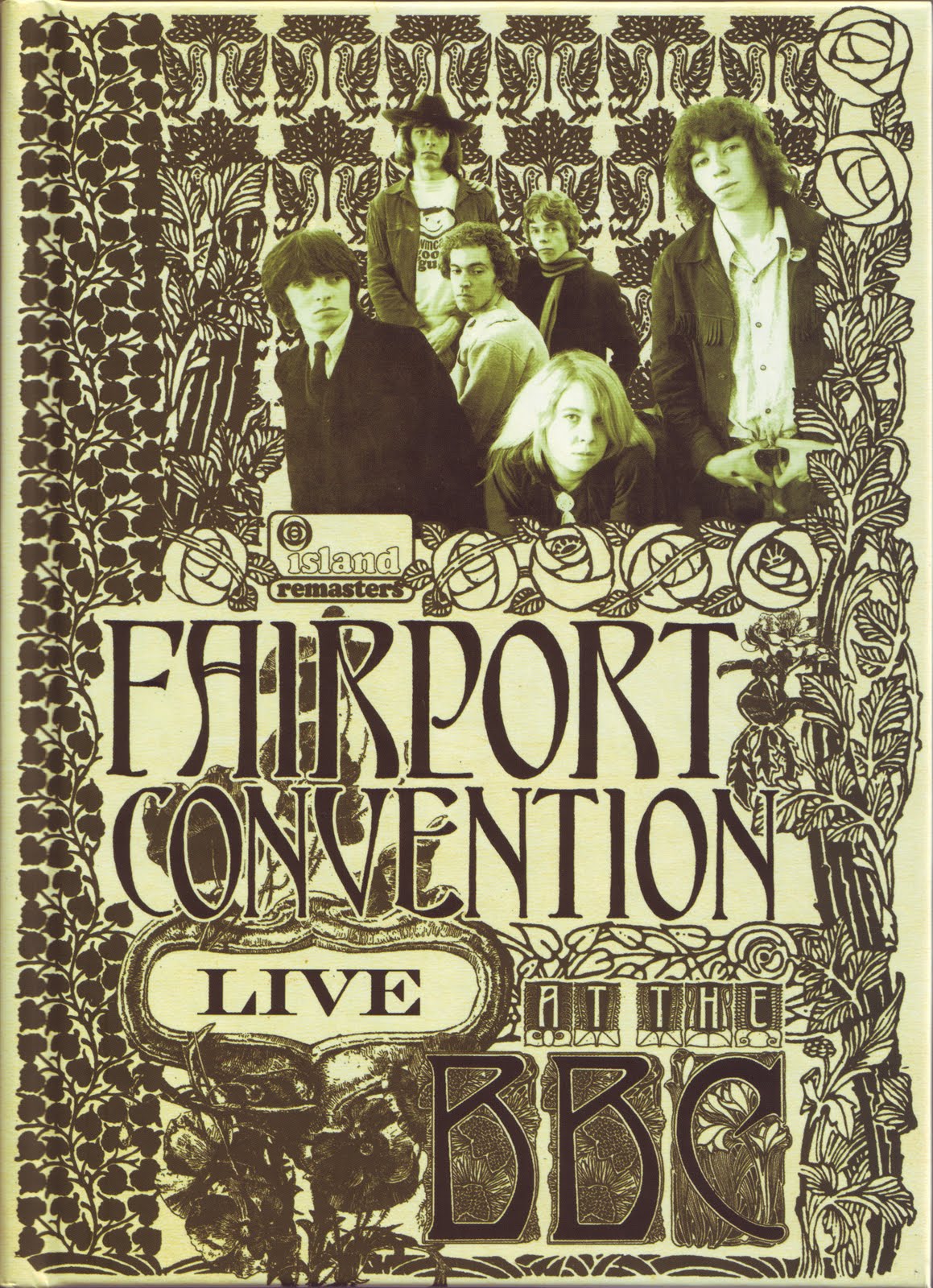 really stuck out to me as very personal, very powerful, and emotionally heavy. We’ve touched on it, but I was hoping maybe you could talk a little bit more about the subject or theme that inspired it?
really stuck out to me as very personal, very powerful, and emotionally heavy. We’ve touched on it, but I was hoping maybe you could talk a little bit more about the subject or theme that inspired it?
RICHARD THOMPSON: Sure. For inspiration I was probably thinking about the way that time chips away at your body. As you get older the bits start to fall off the trolley, you know, and it’s a bit like a burglar breaking into your house and smashing the windows and stealing things, ripping the TV set out from the wall, and it’s a kind of vandalism. I suppose that’s the kind of mood I was trying to create in the song. The imagery is kind of CSI imagery. My father was actually a detective over in England, and when I was a kid growing up there were lots of criminology books on the book shelves at home and as a boy or child, I’d kind of pick these things up and read them and I think it had a kind of lasting effect. Not necessarily a good effect but a lasting effect.
PHAWKER: Alright, so when you put the album together, did you intend for this collection to have a unifying theme or were you coming from all different places when you put this together?
RICHARD THOMPSON: I think the songs are really all over the place. There isn’t a unifying theme, but I think you’ll find, as you find in a lot of other records, a lot of albums, because the songs are written around the same time, and because they were recorded at another time in kind of a lump with the same musicians, there was a kind of a unity to the record. You find it with a record like Sgt. Pepper, which people always cite as a very complete album that hangs together. The songs are really all over the place, but I think the fact that it’s the same musicians playing the songs written at a certain period of time, that’s kind of an overview, so it really becomes a complete piece. So I think of it as being one thing, as it being an album. In about a years time, maybe six months time, I might think about it in a different way and feel that some songs are stronger than others, and some songs I’ll keep performing live, and I’ll kind of extract them from the hole. I think that happens with every record that gets made, really.
PHAWKER: Do you feel that the songs compliment each other well?
RICHARD THOMPSON: I do, yeah. I’m not sure why or how but I think they do.
PHAWKER: Are there any songs that you feel more confident or better about, or that you like more than other songs on the album?
RICHARD THOMPSON: (laughs) Well the songs are like children. You’re not supposed to favor particular children over others. (laughs) But let’s see, I find that if I have a favorite it’s a different favorite tomorrow, so probably my favorite song at the moment is “Love Whispers Your Name,” which I think is the last song on the album. It just kind of wrote itself. I’m happy to accept the consequences, but I think it just happened, I think I wrote it very quickly. Just poured out somehow.
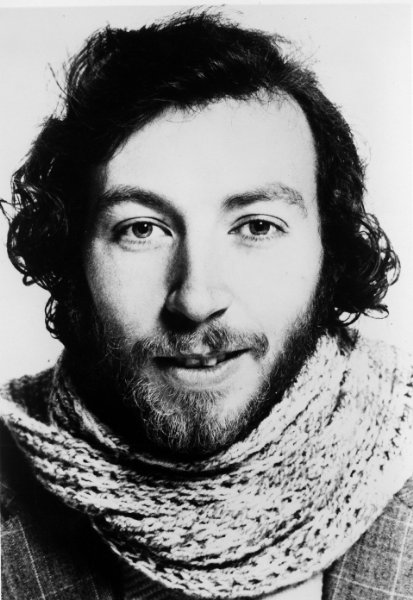 PHAWKER: My boss wants to know if you take requests, and if so, when you appear at the Philadelphia Folk Festival could you please play “Calvary Cross”?
PHAWKER: My boss wants to know if you take requests, and if so, when you appear at the Philadelphia Folk Festival could you please play “Calvary Cross”?
RICHARD THOMPSON: (laughs) You know, that’s a very difficult song to play solo acoustic, which is the way I’ll be playing. It really needs a band. Its whole structure really depends on other musicians so I might have to say to your boss that I’m very sorry but I don’t think it’s possible to do it. And I appreciate the request but that would be a very touch one to do.
PHAWKER: I’ll pass on the message
RICHARD THOMPSON: (laughs) Please do. I could say that the first time I played the Philadelphia Folk Festival was gonna be 40 years ago, in 1970 with Fairport.
PHAWKER: How many would you say you’ve attended?
RICHARD THOMPSON: Not that many. I’ve probably played it about four or five times, and between 1970 and probably 1990 there was a big gap. I think the last time I played it was 2006 or 2007, something like that.
PHAWKER: I think that just about covers the questions I wanted to ask you, unless there’s something else you’d like to add.
RICHARD THOMPSON: No I think that covers everything for me, thank you.
PHAWKER: Thanks for your time Richard. I’m looking forward to the festival.
RICHARD THOMPSON: Fantastic, I’m looking forward to it.
